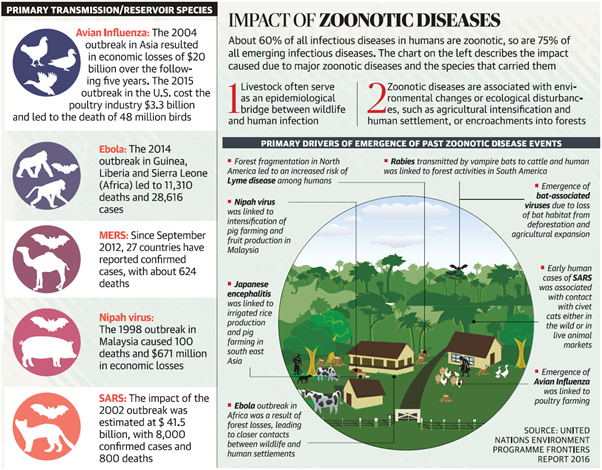Why in news?
There have been increasing incidents of the public destroying bat roosts and smoking them out.
This is due to unverified news and social media posts linking bats to the COVID-19 outbreak.
To raise awareness, 64 CHIROPTEROLOGISTS (THOSE WHO STUDY BATS) from six South Asian countries have released a document clarifying myths about bats and strongly affirming that bats do not spread COVID-19.
Details of what they said
- Human activities and encroaching upon wildlife habitats put us at risk of encountering new viruses. We need to modify human practices to prevent the emergence of new pathogens.
- The exact origin of SARS-CoV-2 is still unknown and it is premature to blame bats or any other animal for the pandemic.
- Killing bats and destroying their habitats can be more harmful as this can lead to bats spreading out their habitat.
- We should remember that all wild animals harbour viruses and it is very biased and unfair to point fingers only at bats.
- If we keep destroying habitats, there are chances of the spread of other viruses from other animals to humans.
- The researchers and conservationists highlight that bats perform vital ecosystem services such as pollination and pest control and provide intangible economic benefits.
- They also clarify that the bat coronaviruses (BtCoV) found in two species of Indian bats (in a recent Indian Council of Medical Research study) are not the same as SARS-CoV-2 and cannot cause COVID-19.
More about Zoonotic Diseases

- These diseases, which “spillover” from animals to humans are referred to as zoonotic diseases, and represent more than 60% of emerging infectious diseases worldwide.
- The destruction of the natural environment, globalised trade and travel and industrialised food production systems have created numerous pathways for new pathogens to jump between animals and humans.



